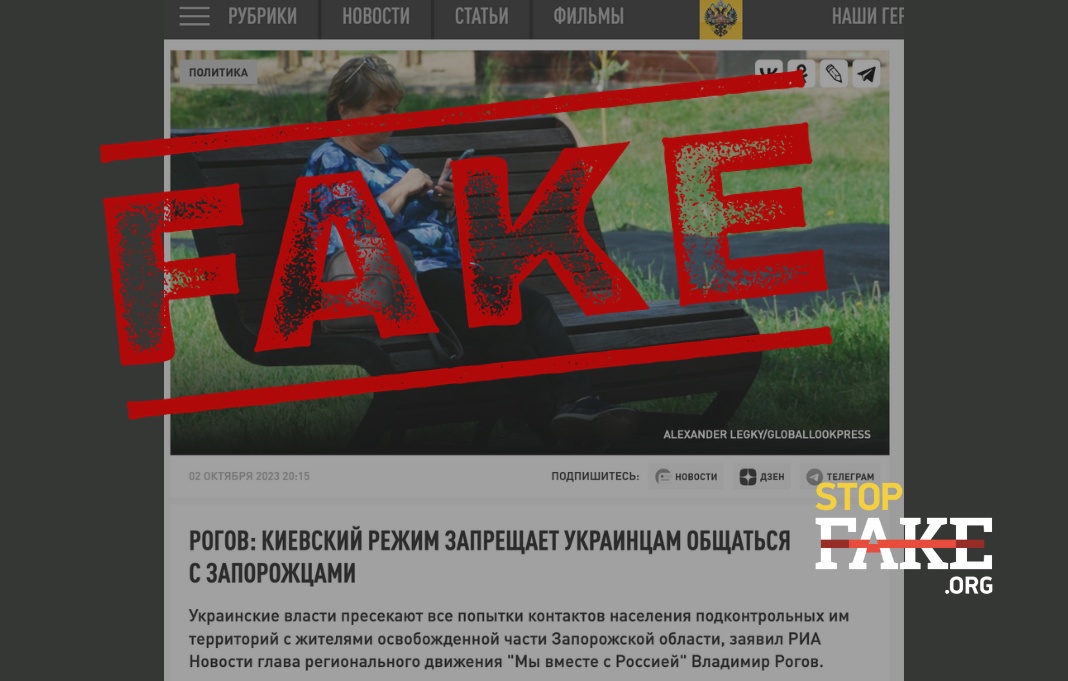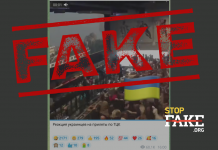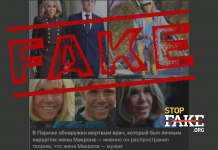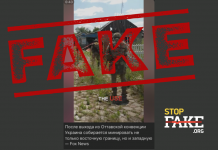Such statements are not true. There are no sanctions for communicating with residents of temporarily occupied territories. There are some obstacles such as problems with communication and the safety of people who are under occupation. But they are a direct consequence of Russia’s armed aggression in Ukraine and the violent seizure of Ukrainian territories by the Russian military.
The Russian media, referring to the so-called local administration representative of the Zaporizhia region, collaborator Volodymyr Rogov, write that Kyiv allegedly cuts off any attempts by the residents of the territories under Russia’s control to make contact with the those living in the liberated part of the Zaporizhia region.
Moreover, Rogov claims that “Zelenskyi’s regime” allegedly “imposes sanctions against people who communicate with those who already live in Russia”. It is apparently caused by Kyiv’s fear “that the Ukrainian residents will understand that Zaporizhia lives better with Russia than with them”.
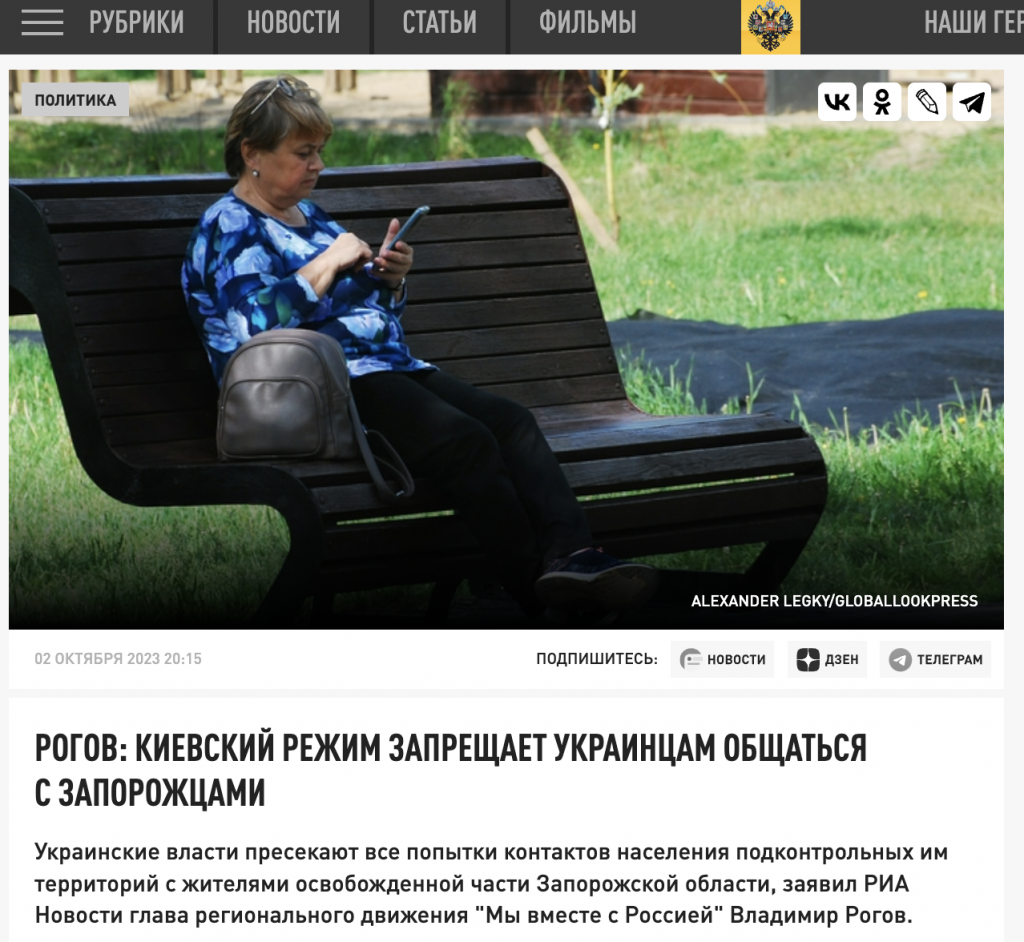
Such a statement is another fake of the collaborator Rogov. This disinformation narrative is aimed at pointing to the allegedly better standard of living in the temporarily occupied territories compared to other regions and to emphasize that Ukraine is not interested in liberating occupied territories and returning citizens living there.
These statements are not true. There are no sanctions for communicating with residents of temporarily occupied territories. There are obstacles such as communication problems and the safety of people under occupation, but they are also a direct consequence of Russia’s armed aggression in Ukraine and the violent seizure of Ukrainian territories by the Russian military.
The Ministry of Reintegrating Ukraine’s Temporarily Occupied Territories developed a set of rules of living under occupation, where, among other things, Ukrainians are advised to keep contact with relatives and friends in the liberated territories.
Also, the Institute of Mass Information emphasizes that if, for example, journalists want to communicate with residents of the occupied territories, then they are responsible for the safety and complete confidentiality of the provided information. Communication should be as secure and protected as possible.
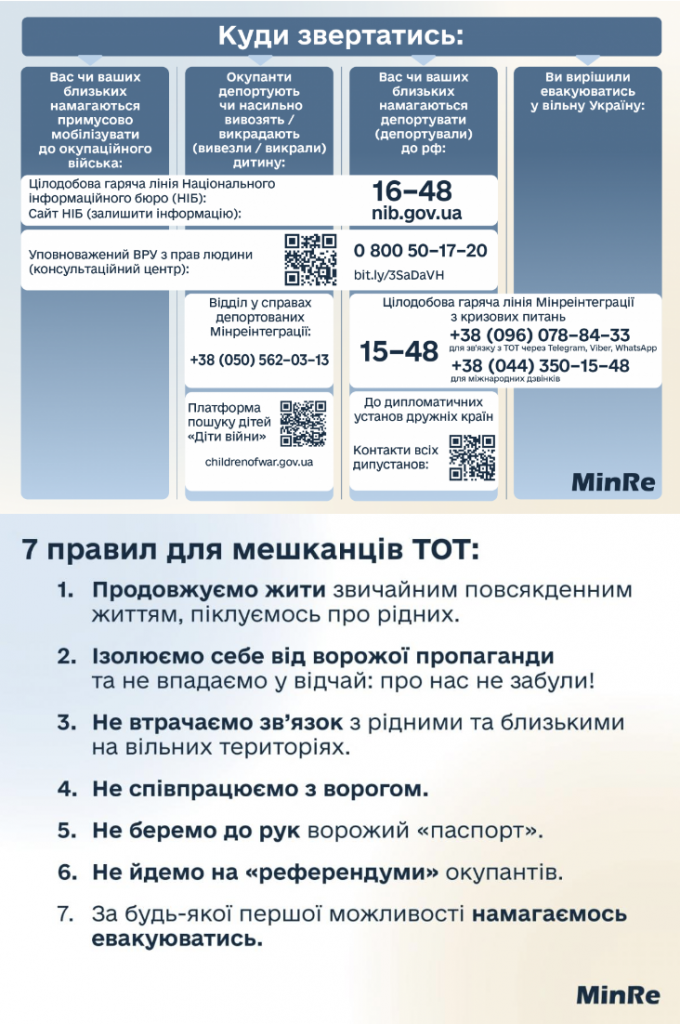
It is also worth noting that as early as August 2023, Ukrainian intelligence warned about a new narrative in the Kremlin’s information war, where one of the themes was allegedly wonderful life in the occupied territories with high salaries, low prices and everything necessary being provided.
Previously, StopFake refuted the claim that the National Police allegedly called residents of the so-called “DPR” and “LPR” “the main problem of Kyiv.”


